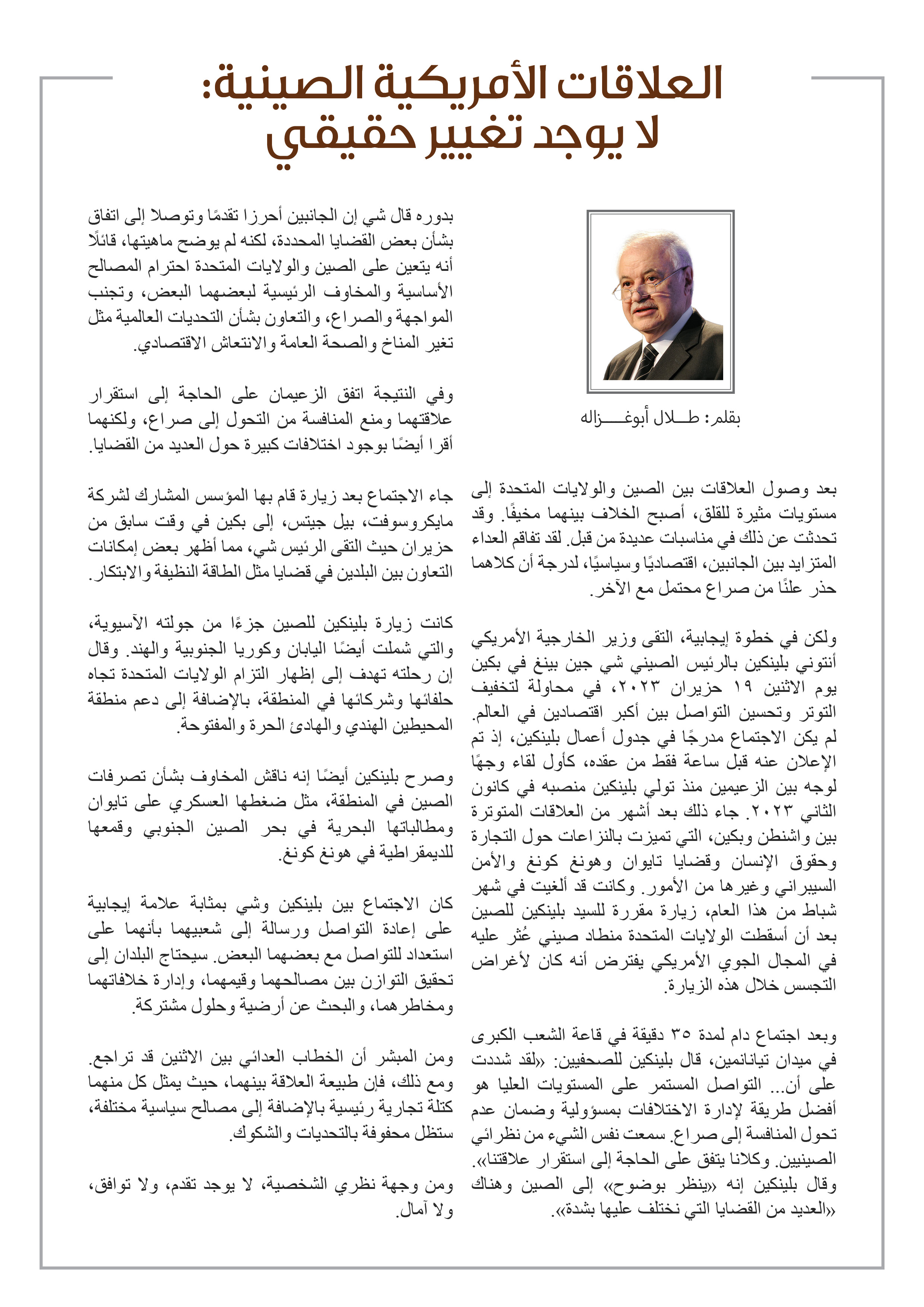
2
JulyUS-Sino Relations: No real change - Talal Abu-Ghazaleh
Having reached concerning levels, the saber rattling between the
US and China has been a worrying development that I have addressed on many
occasions before. The increasing hostility between the two, both economically
and politically, has deteriorated to the point where both sides have publically
warned of possible confrontation with the other.
In a positive move however, US Secretary of State Antony Blinken
has met China’s President Xi Jinping in Beijing on Monday 19 June 2023, in a
bid to ease tensions and improve communication between the world’s two largest
economies. The meeting, which was not originally on Blinken’s schedule and was
only announced an hour before it took place was the first face to face
encounter between the two leaders since Blinken took office in January 2023. It
came after months of frosty relations between Washington and Beijing, marked by
disputes over trade, human rights, Taiwan, Hong Kong, cybersecurity and other
issues. A previous meeting was originally scheduled for February this year, but
was cancelled after the US shot down a supposed Chinese spy balloon found in US
airspace.
After a 35 minute meeting at the Great Hall of the People on
Tiananmen Square, Blinken told reporters: “I stressed that… sustained
communication at senior levels is the best way to responsibly manage
differences and ensure that competition does not veer into conflict. I heard
the same from my Chinese counterparts. We both agree on the need to stabilize
our relationship.” Blinken also said
that he was “clear-eyed” about China and there were “many issues on which we
profoundly - even vehemently – disagree.”
For his part Xi said that the two sides had made progress and
reached agreement on some specific issues, but did not elaborate on what they
were, saying that China and the US should respect each other’s core interests
and major concerns, should avoid confrontation and conflict, and should
cooperate on global challenges such as climate change, public health and
economic recovery.
Both leaders agreed on the need to stabilize their relationship
and to prevent competition from turning into conflict. But they also
acknowledged that there were major differences on many issues.
The meeting followed a visit by Microsoft’s co-founder Bill
Gates to Beijing earlier in June where he met President Xi, showing some
potential for cooperation between the two countries on issues such as clean
energy and innovation.
Blinken’s visit to China was part of his Asia tour, which also
included stops in Japan, South Korea and India. He said that his trip aimed to
demonstrate US commitment to its allies and partners in the region, as well as
to uphold a free and open Indo-Pacific.
He also said that he had raised concerns about China’s actions
in the region, such as its military pressure on Taiwan, its maritime claims in
the South China Sea and its crackdown on democracy in Hong Kong.
The meeting between Blinken and Xi is undoubtedly a positive
sign of re-engagement and a message to their own people that they are willing
to reach out to each other. The two countries will need to balance their
interests and values, manage their differences and risks, and seek common
ground and solutions.
It is encouraging that hostile rhetoric between the two has
moved down a gear. However, the very nature of the relationship between them,
each representing a major trading bloc as well as differing political
interests, is set to remain fraught with challenges and uncertainties.
In my personal view, no progress, no agreement, no hopes.



